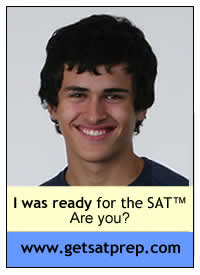How to Write the College Admission Essay
The college admission essay is not a piece of prose or a business proposal. It’s an interview in essay form. Many students agree that writing the college admission essay is the most challenging part of the college application process.
The Admission Essay is Important
After reading the academic record, and the SAT score or the ACT score, the college application essay is likely the next item an admissions official will read when considering a student for acceptance. The college entrance essay says, "I am a good fit for this college, and I can communicate in a way that is consistent with my education". Since the college essay is not a timed response, it should be error-free and clear. It should be edited and read by a parent or other adult, but not written or re-mastered by anyone other than the college applicant.
Proper Format
Tell it like it is, but follow the proper essay format. The initial paragraph should introduce the subject of the essay. The first paragraph is where you want to introduce your main idea (response to the essay prompt). In the body of your essay, write examples that support your main idea. In the final paragraph, summarize what you have written.
Throughout your essay, stay on topic. Editing can be done later. Your examples don’t have to be unique, thought provoking, or even exciting. They do have to be sincere.
How to Start the Application Essay
Read the essay prompts and discuss your ideas with a good listener. Choose your examples and how you will present them to support your main idea. Determine your conclusion so you are sure to write each example with the correct goal and tone in mind.
Write as much as is possible in an hour, focusing only on content. Work on clarity and style at another time, since it may be difficult to edit and rework sentences during the creative process. At some other time, read the essay aloud, avoid redundancies and unclear wording. Rework sentences and leave out any thing that does not relate to the main idea and final attitude. Expressing one idea clearly is more effective than a flood of words and ideas.
How to Choose the Essay Topic
Imagine you are in an interview, what question do you wish the interviewer would ask you? What would you love to talk about? Your work at an animal shelter? The beta testing you did for a new video game? The campout you went on with your best friends? Write about it! The college essay is the best way to tell the admissions board the interesting things about you. You know yourself best. Real-life examples are interesting to the reader.
If you can’t think of a subject to write about, write about one of the activities in the activities list you will include with your application. Be sure that you are telling why the activity is important to you, why you stayed committed, and why you spent so much time participating. For the long essay (500 words or more) be sure to choose one topic only. If possible, make that topic something which will relate to your intended college major or future career interests.
Stay on Topic
You’re in control of this interview. Avoid listing small details that distract. Consider how you would feel if you were telling a story and the listener kept asking you questions about small details. You would get frustrated because you would feel he was missing the point of your anecdote. In the same way, too many small details only distract the reader from your point. Keep the examples moving towards your main idea.
End on a Positive Note
If you are relating a sad or tragic personal experience, use less than 100 words to describe it. For a short essay, keep the description in the second-fifth of the essay. Focus on the positive outcome or lessons learned. Remember, this essay represents you to the college. Don’t give the mistaken impression that you are a "broken person". A college may hesitate to admit a student with emotional problems. So, if your examples relate negative experiences, keep them short and near the beginning of your essay so you have the space and time to write how you were eventually able to overcome these experiences. Highlight the positive outcome to leave the reader with a sense of your ability to triumph over hard times.
Some Do’s and Don’ts
Below are things to do.
- Speak in the first person. This is you talking. When referring to yourself, use the I pronoun; avoid using you.
- Allow enough time to read the essay many times.
- Edit. Write and rewrite the essay to ensure clarity. Avoid details which confuse or add nothing.
- Read your essay aloud to hear how it sounds. Does it flow? Make sure it is your voice.
- Ask others to read your essay and give their feedback. Ask that feedback be constructive, such as; "I would love an example of that", "What happened next?", "This part confused me". Ask the reader how he felt after reading the entire college essay. His attitude will most likely be the same as the reader in the admissions office. Revise the ending to elicit the response you desire.
- With help, fix misspellings, errors and unclear writing. Ensure that your style and personality is represented, but don’t allow errors.
Below are things to avoid
- Do not exceed the word limit. Consider the reader. How would you feel if someone gave you more work to do?
- Avoid clichés. They do not distinguish you from other applicants since a cliché is someone else’s words.
- Avoid trying to say too much. Stick to one topic. Remember that you have an accomplishment list elsewhere in the application.
- Avoid a surfeit of "big" words. The topic of the college admissions essay should be about you. While the college application essay should be written to impress, it should avoid showing you in a pretentious light.
- Avoid slang. You are introducing yourself, not selling yourself.



